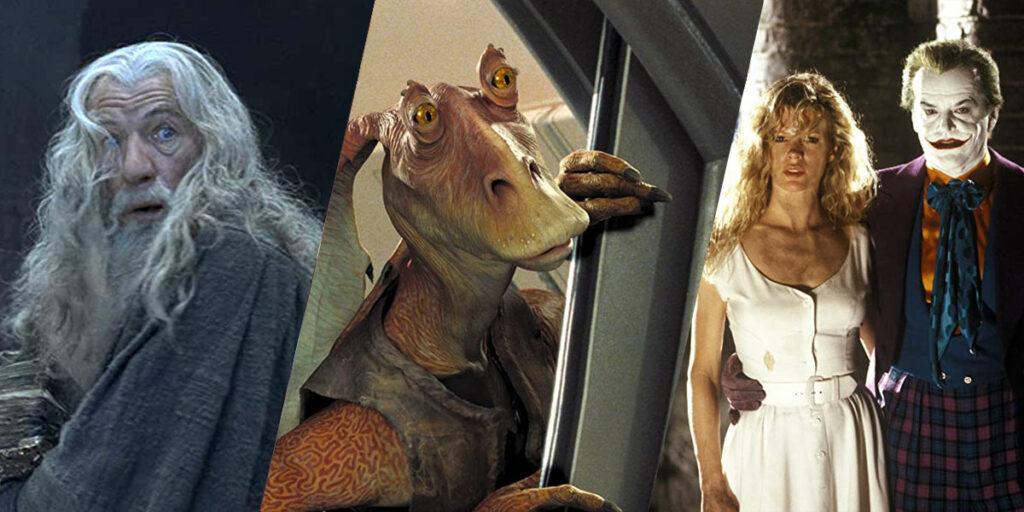From the pointless to the annoying to the harmful, let’s grit our teeth and count down our personal picks for the top 12 worst film clichés!
Hello everyone, and welcome to one of the most unoriginal ideas I’ve ever had: a list about the worst film clichés. Dare I say the idea is itself clichéd? Everybody has clichés and tropes they personally love, some they’re indifferent towards, and some that they flat-out dislike. It all varies from person to person, which is why I wanted to share the clichés that I dislike the most. Which is to say, these are not the objectively worst clichés. The article title may say “worst,” but that’s because search engine optimization hates us all. These are just my own personal Top 12 least favorite film clichés, which will obviously not be exactly the same as anyone else’s.
They’re the tropes that I find the most worthless, aggravating, pointless, distracting, or overall detrimental to whatever film they’re in. Some come from the writing while others come from the filmmaking, and most have exceptions to the rule that I’ll address. But on average, I find they do way more harm than good. So, let’s count down what I consider the Top 12 worst film clichés!
12. SHOWING THE MIDDLE/ENDING AT THE BEGINNING
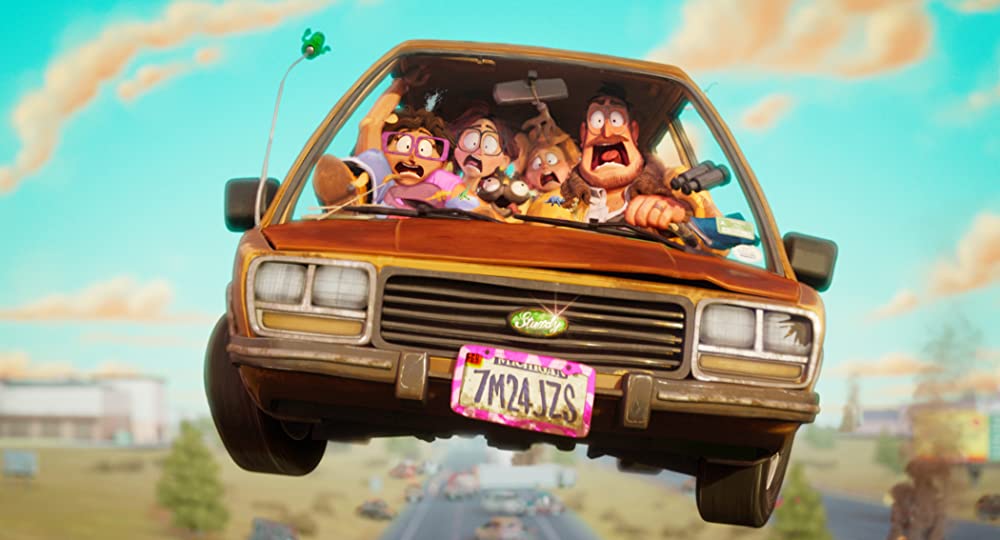
“Yup. That’s me. You’re probably wondering how I got here.” I mean … I guess, but I’d have liked it to be a surprise when you do get there. Which is why I dislike the cliché of film openings that show you something from the middle or even the very end of the story’s chronology. Whether it’s done comedically like in The Mitchells vs. the Machines or dramatically like in Sunset Boulevard, I don’t usually see much value in this gimmick. It’s clearly meant to have the viewer wondering in anticipation how indeed things could have reached the point they see. But for me, it instead just makes me feel like the film is showing its cards before it needs to, deflating the tension and/or surprise.
If I know part of the ending outcome or part of a sequence that’s yet to really happen, that’s less of the overall story that could potentially play with my expectations or have me curious to know what the ultimate outcome is going to be. There are ways the cliché can work excellently, like in Memento where the whole film is structured to have its reveals be more effective when done out of narrative order. But if there’s no added benefit like that, then why do it? Sure, in the short run, I’m intrigued as to what circumstances led to what I’m seeing. But it’s at the long-run cost of knowing what’s eventually coming, which I don’t consider worth it.
11. DREAM SEQUENCES
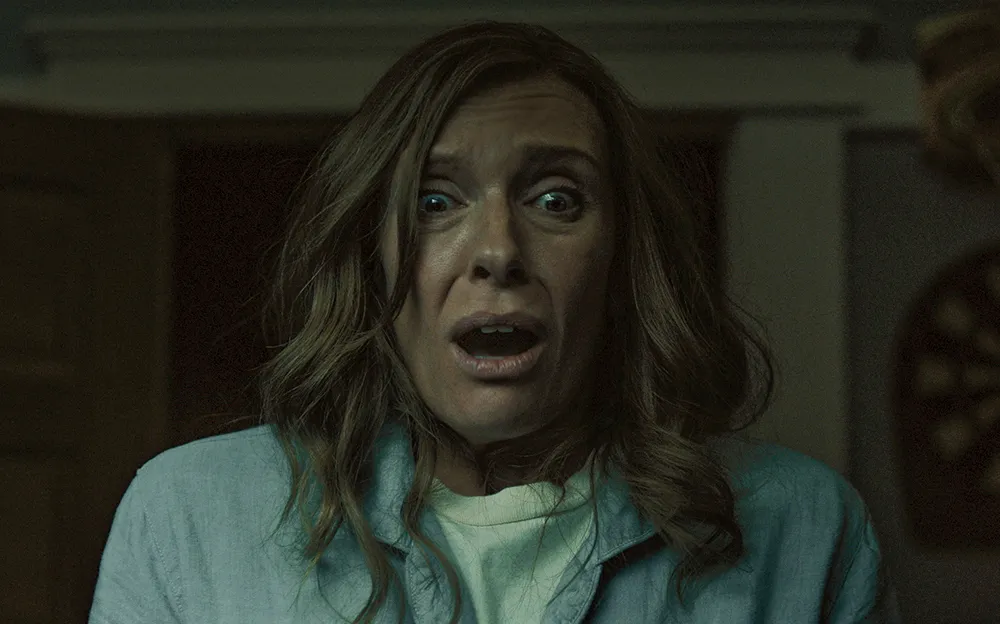
How many times, especially in horror films, have you been hooked by a creepy, surreal, maybe even disturbing sequence, only for it to then be revealed as just a character’s dream? Films of varying quality, from Hereditary to Jaws 4 (how often do those two get mentioned in the same sentence?), all pull this trick. And it often comes across as a way to just get certain imagery or confrontations into a film without them needing to be of actual consequence. But that’s just the problem: they’re of no consequence, so why do they matter? If I’m on the edge of my seat, gripped by the tension of what’s happening and what it could mean, there’s very little that can deflate that tension more than pulling back the curtain and showing that I never had a reason to be worried in the first place.
I’m a little more lenient towards this cliché if it’s clear up top that what I’m seeing is in fact just a dream sequence. The ones that fake me out are what really rub me the wrong way, especially the more of them I see. The two worst types of examples are the ones that are shoehorned in when the substance of the story has nothing to engage us, and the ones that are so good and substantial that I’d prefer them to be real. I get that it must be tricky to incorporate all the types of strange scenarios a writer may want to see into their story, or that dream sequences can be a good way of looking into a character’s psyche. But unless they’re used in really creative ways, I find them a disappointing, overly easy way of doing what a more concrete or even ambiguous approach could have accomplished.
10. QUICK-CUTTING ACTION
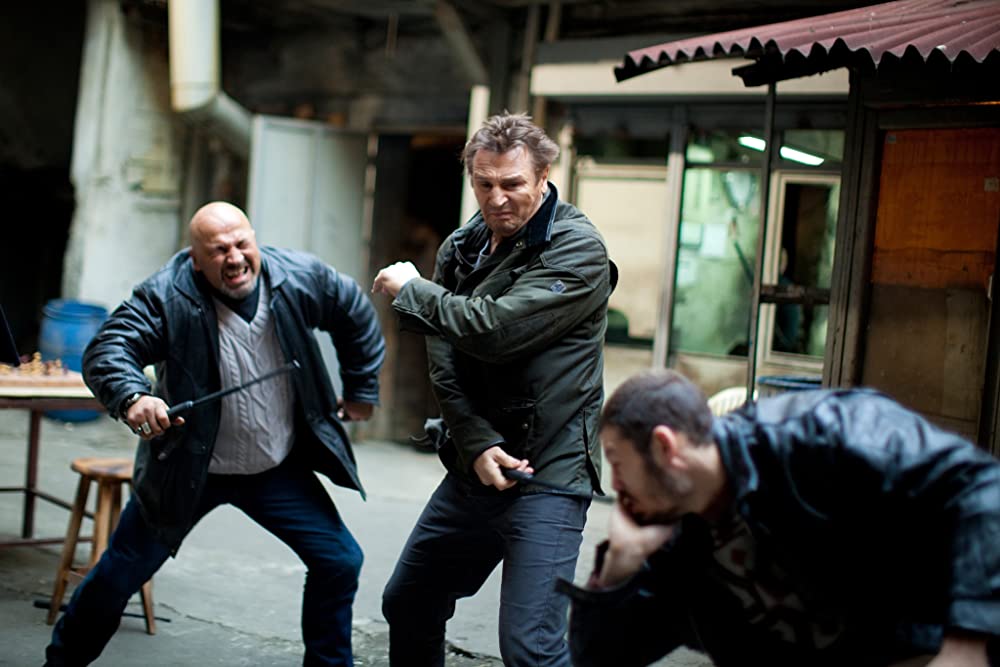
Who doesn’t love a good action sequence … aside from people who don’t like action? Assuming enough of it is done practically – which we’ll talk about later – one of the best parts of action movies is usually marveling at how a one-on-one fight, clash of large armies, or vehicle chase was put together. The planning of the choreography, the gutsiness of the stunts, and the physical acting required to sell it all are amazing to see … except when the sequence is edited so quickly and choppily that you can’t see it. I don’t see this cliché pop up often nowadays, which is why it’s so low on the list, but there’s a large crop of films like Taken 2, X-Men Origins: Wolverine, and Batman Begins that seemingly refuse to hold on an action shot for more than one second.
This topic’s been discussed ad nauseum for years, so I have nothing really new to add. Many have pointed out how this kind of editing is usually done to either mask poor stunt work, make it easier to shoot because nothing actually difficult needs to be done, or … just for style. Whatever the case, I’ve yet to see a movie that uses it in a way I enjoy. It’s just hard to be on edge with each punch thrown when you can’t even see the whole punch being thrown.
9. WILL-THEY-WON’T-THEY ROMANCE
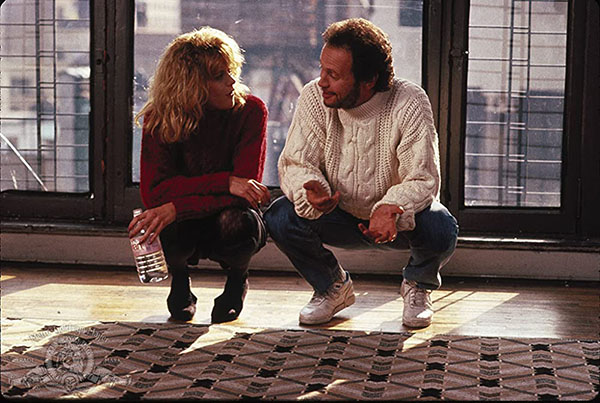
I can be a sucker for a good romance, even one that builds up more slowly. But when that buildup is stretched out and teased for so long to the point of simply stalling, that’s when I roll my eyes. Sadly, many different types of stories across many different mediums try to toy with the notion of two characters getting together so that we can keep asking, “Will they? Or won’t they?” This cliché bothers me mainly because I think romantic relationships have so much potential to be interesting in and of themselves. When they’re allowed to actually happen, we can watch them flourish, see their ups and downs, gush at the cutesy moments, be concerned over the challenging moments, and admire how the two people involved keep making it work.
That’s so much juicier to me than coming up with contrived reasons for a couple to not get together quite yet. The cliché can be done well if its reasons for existing are interesting and deep, like in Before Sunset or When Harry Met Sally. But usually, it just comes across as a way to force extra drama and delay the couple ultimately getting together, as if the movie doesn’t know how to make a natural, healthily-building relationship compelling, or it’s afraid the couple will stop being interesting once they actually get together. Even if the two parties have good chemistry with each other, that can be easily cancelled out if said chemistry is never allowed to move forward. I eventually just throw my hands up and say, “If you haven’t hooked up by now, you might as well not even bother.”
8. OBLIGATORY ROMANCE
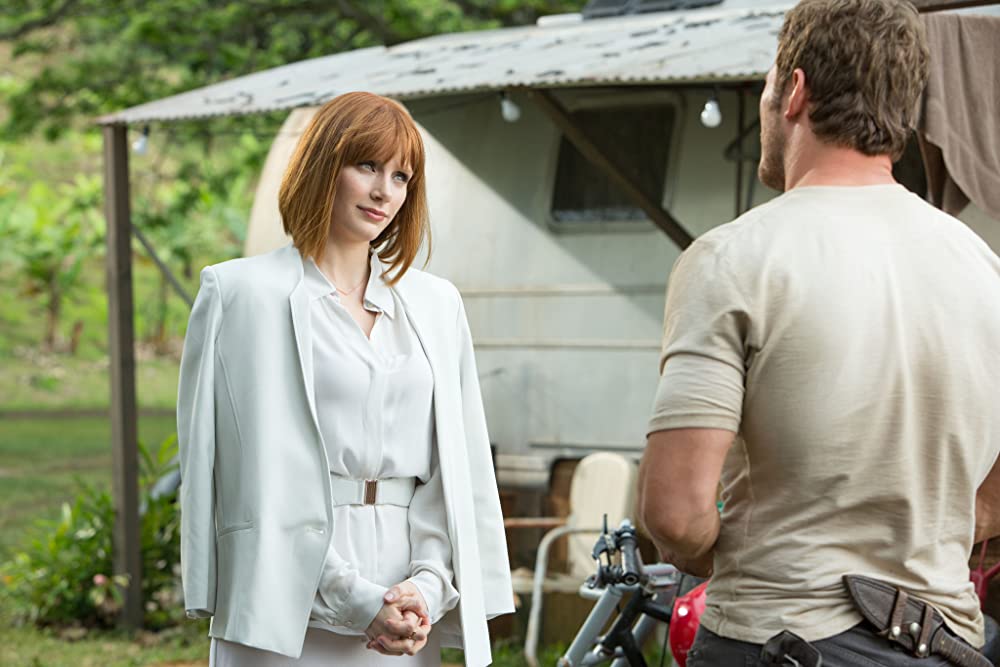
What’s worse than a couple taking too long to get together? A couple that gets together just for the sake of it, even if they don’t have any romantic chemistry or their interests in one another weren’t developed in the slightest. They get together because, usually, one’s a male and the other’s a female, and some weird unwritten rule says they must be romantically involved because of that alone.
There are too many examples of this to count: The Matrix, Jurassic World, Ant-Man, The Last Jedi … those are just drops in the bucket where a romantic attraction feels like an obligatory afterthought that doesn’t serve the story or their characters at all. At best, this cliché takes a perfectly good platonic relationship and adds a head-scratching extra layer that distractingly feels like an afterthought. At worst, it rests so much of the drama on an unconvincing romance where the bond between two characters would have been much more convincing without it.
The Matrix is one of the worst examples for me because of how critical the main couple’s “love” ends up being to ultimate victory, despite their chemistry being as sterile as chemistry gets. The worst part of the cliché is often just how unnecessary it is. If two characters make natural emotional sense to be romantically involved, I’m all for it! If not, just let them be close friends and don’t muddy the waters by forcing romance in. And for God’s sake, don’t have them constantly snap and bicker at each other in defiance of the notion of getting together, as if that’s supposed to make us root for them more.
7. VILLAINOUS CRUSHES
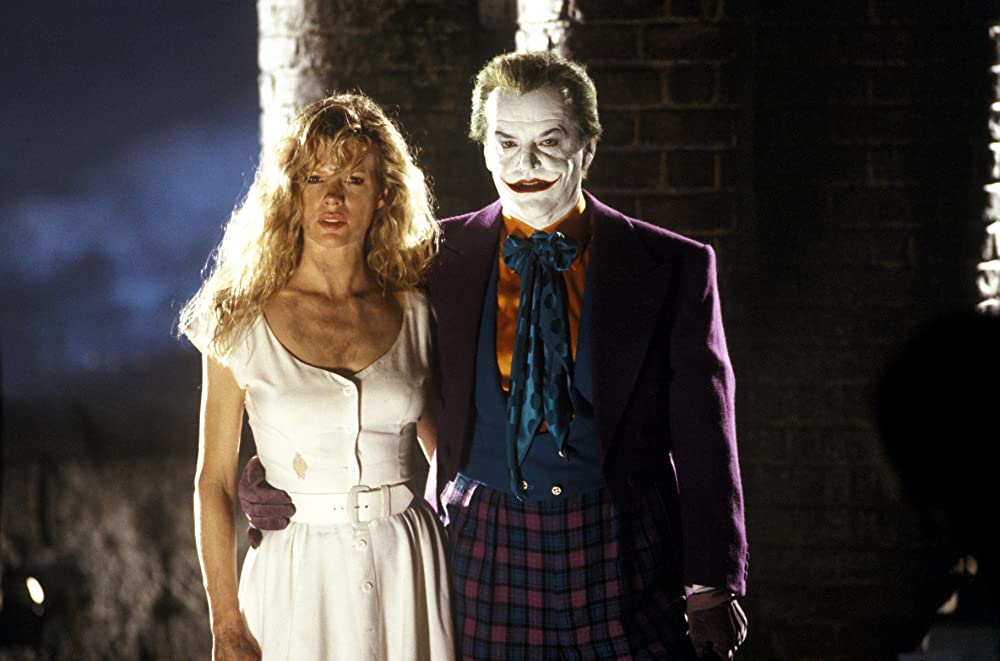
This cliché is when the villain of a movie develops a lust for one of the heroes or supporting characters, usually the love interest of the main hero … and in a vast majority of examples I’ve seen, it’s a male villain lusting over a female love interest. The Joker with Vicki Vale in Batman, Biff with Lorraine in Back to the Future, Aldrich Killian with Pepper Potts in Iron Man 3, to name a few. While I think the trend of these specific gender assignments is iffy, my main problem, even with that aside, is how the cliché is a cheap, shallow way of making the villain look even more evil, while also inadvertently making the love interest look more like just an outlet for their villainy. Even if there is indeed more to either character than that, those attributes feel slighted to me the moment this trope pops up, especially when the lusting is surface-level.
If this cliché was less common, I probably wouldn’t mind it that much, and I’d have a greater appreciation for whenever it does deepen the characters involved. But because it’s done as often as it is, I’ve come to see it as objectifying the love interest and simplifying the villain even when it’s done alright. And yes, I do think it’s unfortunate that it’s almost always a man lusting after a woman in these instances, because similarly to the obligatory romance cliché, that comes across to me as the trope being done only because they’re opposite genders. It’s also particularly bad when the cliché is used more to give the male hero something to fight for than to give the female supporting character something to fight for. I get that shallow, damaging lust happens in reality, but I’m not really impressed with most of how it’s portrayed in film.
6. MISUNDERSTANDINGS
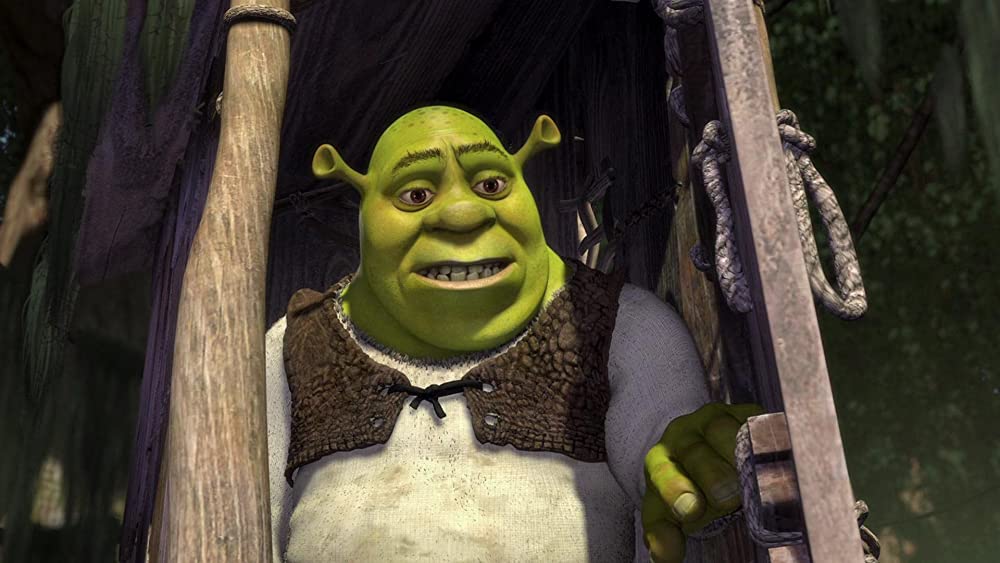
This cliché is most common in romances – which, I’m just now realizing how many of these clichés involve romance – but it can extend to any kind of story. It’s when two or more characters misunderstand or misinterpret what another is saying or doing in a way that pulls them apart, usually in the third act. Shrek, White Christmas, and Avatar are all guilty of this, and they’re less enjoyable to me as a result.
The cliché bothers me because it’s usually just a forced way of creating conflict between characters that could easily be avoided if they communicated even a little competently. A character just happens to overhear what another is saying, in a way that just happens to be specifically-worded enough to line up with something else, and they just happen to act on it without actually confronting the other person or considering they may be misinterpreting something. The stars usually have to align pretty perfectly for it to make any sense.
Sure, misunderstandings happen in real life, but it’s how contrived and manufactured a lot of them are in film that makes me dislike them as a cliché. Making matters worse is how often these misunderstandings can stop a plot dead in its tracks or even outright derail the entire story out of nowhere. I’m also specifically talking about dramatic misunderstandings. If they’re played solely for laughs or are setting off purely comedic payoffs, that can be great. But otherwise, I once again find them cheap, and yet another sign of a film being unable to create actual realistic relationships with which most people can reasonably identify.
5. COMIC RELIEF CHARACTERS
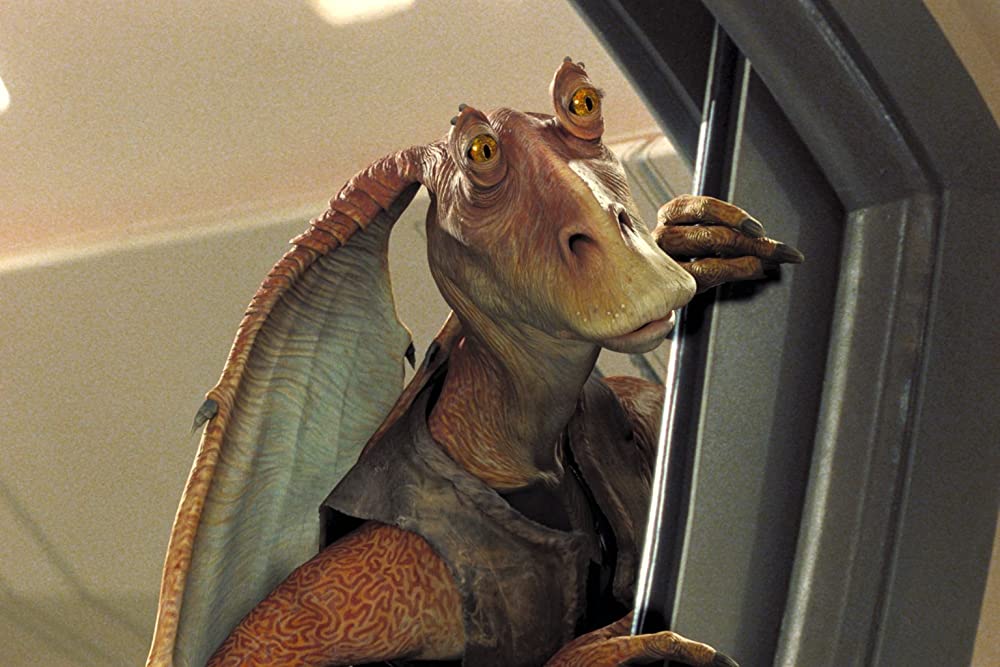
Now we’re getting into the clichés I flat-out hate. This is a pretty broad one, but I’m essentially referring to any character whose main purpose is comic relief or general shenanigans. Jar Jar Binks, Ruby Rhod, a seemingly endless string of Disney side characters … unless they’re in a cast where everyone’s supposed to be funny, these characters stand out as a singular source of a large chunk of the film’s comedy. Unfortunately, more often than not, that makes them nuisances to me who distract from the rest of the story I’m trying to get into. These types of characters also tend to be the least interesting or complex of their movies, making them come across even more like pointless baggage. It also doesn’t help that a lot of examples simply don’t make me laugh that much, making it extra annoying if the film really pushes them as comedic highlights.
In the absolute worst cases of this cliché, the wacky sidekick can utterly clash with a film’s more serious tone, like how The Lion King follows up one of the most tragic deaths in movie history with the two loudmouths Timon and Pumbaa prattling on about bugs and farts. Because … kids’ movie, I guess. It’s nice to have one or two characters be more humorous than the others for the sake of variety, but I’d rather this approach be done with more restraint, allowing the inherent comedy within a particular group to come naturally so that no single character has to carry too much of the load. Unless the film is fully a comedy, it’s very rare that a blatant comic relief character is my favorite part of the movie they’re in.
4. OVERUSED CGI

When it comes to film, I’m generally not one to complain that they don’t make ‘em like they used to. I think every era of film has its advantages over the others, and I don’t have a longing for the older days that I was never alive to experience. But if there’s one thing I’ll give older films over newer ones, it’s their approach to special effects. Almost every single big, modern movie is plagued by some level of unconvincing CGI where other effects like puppetry or real sets would have been used in the older days. And unless it’s some of the best CGI ever, it almost always sucks me out of whatever world I’m supposed to be in, because I’m constantly aware that what I’m seeing isn’t really there. I love all forms of effects and the work that goes into them, but I have an insistent mindset that if an effect can reasonably be done practically, it should be, especially if the studio can afford it.
The other reason excessive CGI bothers me is that I can’t help but wonder how much more advanced on-set effects would be today had more filmmakers stuck with them, even after the rise of CGI in the 90s. If John Carpenter’s The Thing looked as mind-blowing as it did in 1982, imagine what a modern movie could look like if that same level of innovation and effort kept getting pushed forward. Especially if it had been combined with CGI to help sell the illusion! This is why films like the Top Gun movies, Jurassic Park, and most Christopher Nolan films are so incredible to me. Not only do they use CGI only where they need to, but they push what could be done practically to their limits and are greater spectacles for it. CGI can be a great effect. But props, makeup, animatronics, and other effects should share the screen with it for the best visual immersion possible.
3. FAKEOUT DEATHS
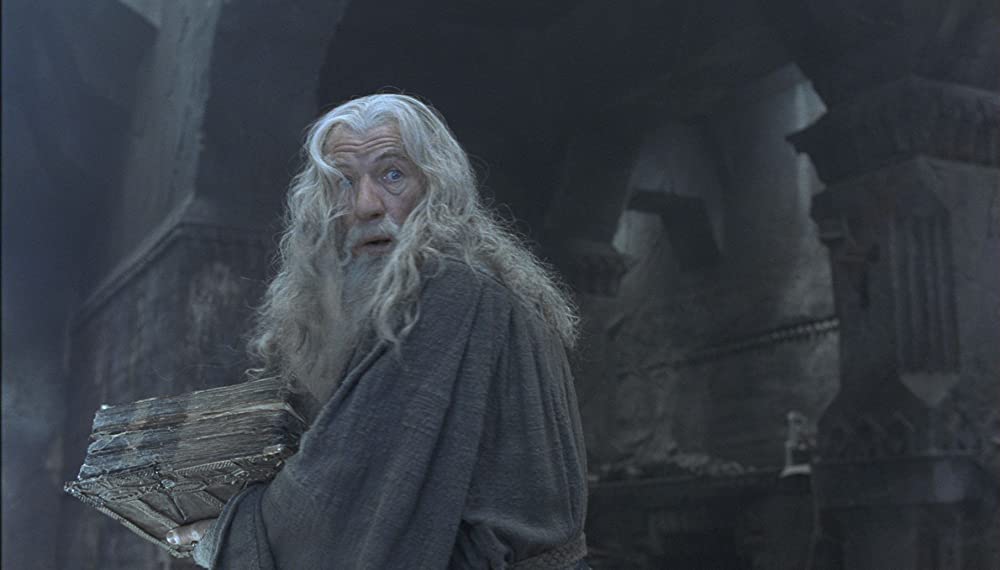
Death is a difficult, permanent thing to grapple with, leaving behind lasting consequences and brutal emotions in its wake. Especially if someone is tragically killed before their proper time. And in film, whenever death happens, I want to feel that same permanence and tragedy, or else I see no point in a death happening in the first place. So, naturally, I get pretty annoyed when a movie tries to make us think a character is gone for good, only to either undo it or reveal they were never actually gone at all. Like many clichés on this list, my biggest gripe comes from the numbing frequency and pointlessness of faked/undone deaths. Fake-out deaths usually reek of either an artificial way to boost drama when the character could have just been written as surviving upfront, or a desperate urge to pander to viewers out of a lack of new ideas.
I’m fine with the trope in something like Avengers: Infinity War, where an entire film’s worth of effort is needed to undo the deaths, or in the newest Dungeons and Dragons, where the reversal is the culmination of a good character arc. But in the Halloween franchise, Lord of the Rings, Violent Night, or the many instances of Loki “dying” in the MCU, I just get sick of seeing the emotion surrounding deaths constantly mean nothing in the long run. I’ve been duped so often that it’s compromised some actual movie deaths for me, because I’m always wondering if they’re legitimate. It’s reached a point where I won’t believe any character is truly dead until they’ve been buried in the ground … But, as I learned with the newest Shazam recently, even that isn’t always a guarantee! Death is supposed to be tough to watch and important. If that effect is undone, why “kill” characters in the first place?
2. FORCED ROMANTIC GESTURES
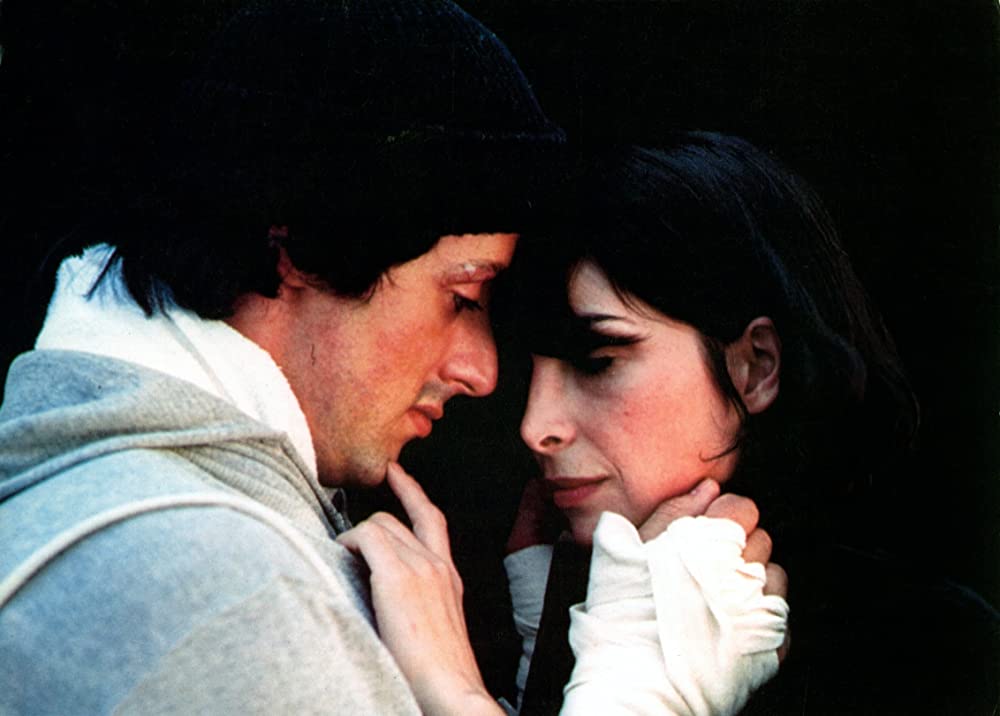
All of the clichés up until now have had exceptions that have worked. This one, though? Not a chance. It’s one thing when intentionally villainous characters make unwanted advances that are meant to be uncomfortable (though as I already stated, I’m still not into that). It’s another thing when the supposed “good guy” is refusing to take no for an answer and eventually “wins” the woman over through force. I’m talking about scenes like Rocky seducing Adrian in Rocky, or Deckard kissing Rachel in Blade Runner, or James Bond forcing himself onto Pussy Galore in Goldfinger. The women here make it very clear that they’re not down to get physical with their respective guys, but the men insist on making moves and, it turns out, the women do actually want them. They just didn’t know it, or they were resisting their own feelings.
So remember, fellas: if you make a pass at someone and they don’t reciprocate, don’t respect their wishes and back off. Just keep going and force it to happen! They actually do want it deep down … I don’t think I need to explain any more why this is a problem. At the risk of coming across as some social justice warrior, I really do think this is harmful when it’s portrayed as being genuinely romantic. Isn’t it taught in grade school that if someone says “No,” it means “No?” Apparently not always. Some attribute this to certain scenes aging poorly. I say it’s just terrible. Thankfully, I rarely see this cliché done in more recent movies, if ever, and plenty of people look back on these kinds of scenes and recognize the problems. But I’m still a little freaked out that they were ever allowed in big blockbuster productions in the first place, enough to put it this high on the list despite its declined usage.
1. JUMP SCARES
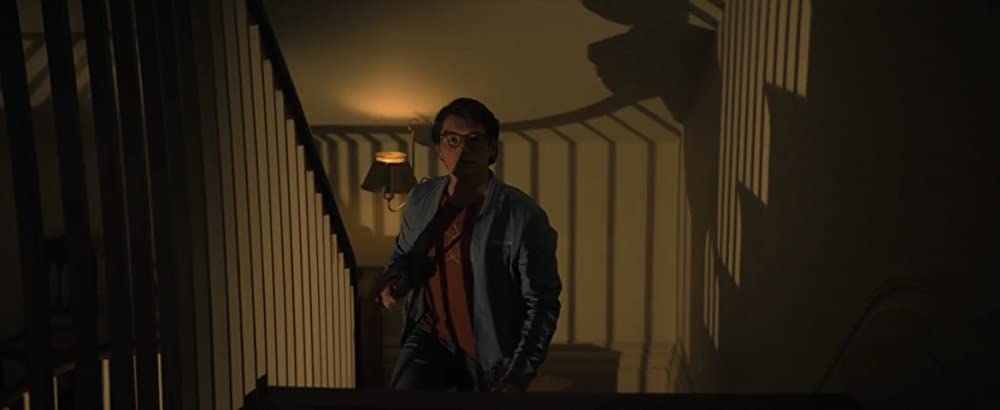
If you were talking to me and I, out of nowhere, suddenly screamed at you for no reason whatsoever, what would happen? You’d be scared for one second, but then you’d wonder, with great irritation, what the hell is wrong with me. That’s basically how I feel towards false jump scares and even, to a lesser degree, legitimate jump scares. A sudden loud noise isn’t scary; it’s startling. And startling someone, especially in a movie, is one of the easiest things you could possibly do. Especially when countless horror films constantly advertise when a jump scare is coming with slow camera pans where all sound is suddenly drowned out. Whenever this happens, I cover my ears. Not because I’m scared of the actual thing that’s going to pop out, but because I know I’ll just be annoyed by the loud, sudden jolt that contributes absolutely nothing to the tension or horror.
Jump scares, to me, are very clear signs that a film doesn’t trust its actual content to be scary on its own, about as clear as a toddler screaming in my ear. What makes them worse is that half the time, they happen because the threat is just standing around waiting to attack for no discernable reason, just so the film can have its buildup to the jump scare! The only times I’ve liked jump scares are when they’re accompanied by actual danger and genuinely surprising. The most famous jump scare from Exorcist III comes to mind, as does a jump scare in 2020’s Run. But those are so few and far between. Horror is my second favorite genre after science fiction, but the jump scare is a stain that it can’t ever seem to be rid of. More than any other entry on this list, the jump scare encapsulates everything I hate in a film cliché: it’s unnecessary, it compromises the material, it takes me out of the story, and it makes me wary of its possible presence in other films whether or not they have it.

